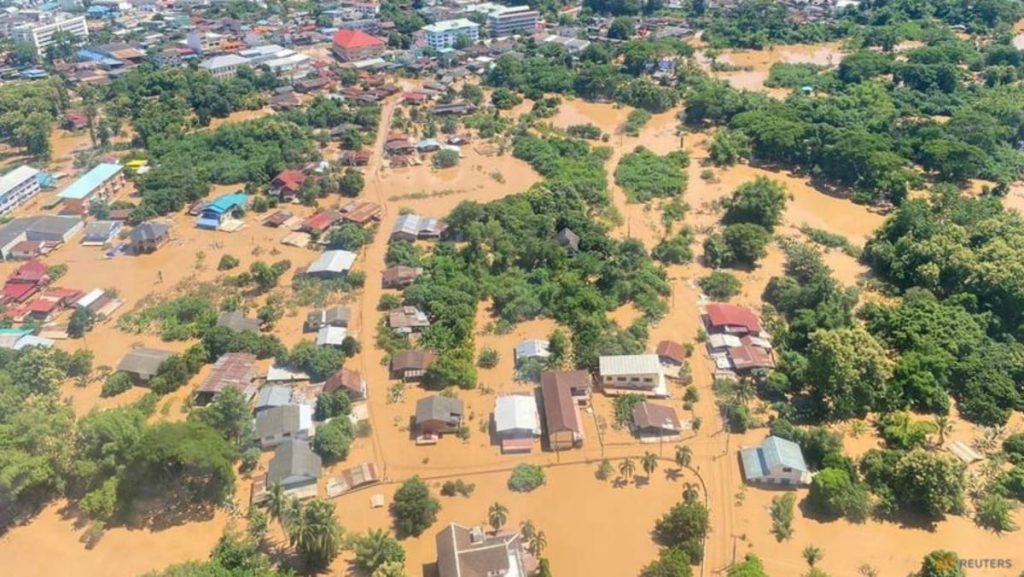Flash floods and mudslides caused by monsoon rains have resulted in the deaths of 22 individuals and injured 19 others in Thailand. The severe weather has affected around 30,000 households, with some provinces still at risk of further damage. Among the casualties were a Russian couple and nine migrant workers from Myanmar who were killed in a mudslide on the island of Phuket as heavy rain swept across 12 provinces in the region.
Prime Minister Paetongtarn Shinawatra visited the affected areas in the northern province of Nan, distributing food supplies to the residents in need. In addition to the fatalities, three workers were trapped under debris following a tunnel collapse at a Thai-China railway construction site in Nakhon Ratchasima. Rescue efforts were underway to free the individuals and assess the extent of the damage caused by the incident.
Severe flooding continues to impact five northern provinces, including Chiang Rai, Sukhothai, and Prae, while regions near the Chao Phraya River, such as Bangkok, are also at risk of rising waters. Despite the heightened water levels, authorities have stated that the situation is still under control and manageable. The ongoing monsoon season has caused widespread devastation in various parts of the country, emphasizing the importance of monitoring the weather conditions and responding promptly to emergency situations.
The Thai government has been working alongside rescue teams and other authorities to provide assistance to those affected by the natural disasters. Prime Minister Shinawatra’s visits to the impacted areas demonstrate the government’s commitment to ensuring that necessary aid reaches the communities in need. The collaboration between different agencies is crucial in addressing the challenges posed by the unpredictable weather patterns during the monsoon season.
As the country grapples with the aftermath of the floods and mudslides, the priority remains on ensuring the safety and well-being of the affected population. The coordination of rescue operations and distribution of supplies play a vital role in mitigating the impact of the disasters and helping communities recover from the devastation. By focusing on immediate relief efforts and long-term recovery plans, Thailand can work towards rebuilding and strengthening its resilience against future natural calamities.
Overall, the recent flash floods and mudslides in Thailand have underscored the importance of preparedness and response strategies in dealing with natural disasters. The government’s efforts to provide assistance to those affected and coordinate rescue operations reflect a commitment to safeguarding the welfare of citizens during times of crisis. By addressing the immediate needs of the affected communities and implementing measures to prevent future disasters, Thailand can work towards building a more resilient and sustainable environment for its people.


